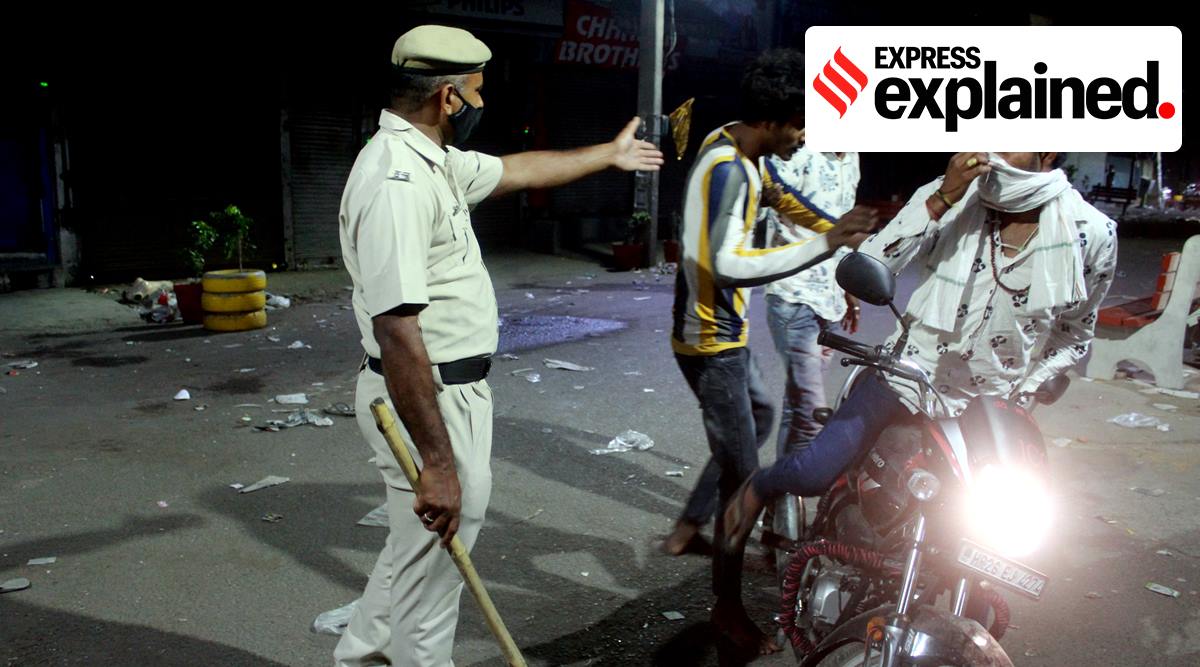Here’s what the night curfew means for different sections of the industry, hospitals, commercial and industrial establishments; who all shall be exempted; and who all can seek exemption and how.
In order to contain the recent surge in Covid-19 cases of infections across Haryana, the state government has imposed night curfew from 9 pm to 5 pm until further orders. With an aim to prevent any disruption to the ongoing economic activities and smooth movement of essential services even during night hours, the state government has formulated a detailed plan.
Here’s what the night curfew means for different sections of the industry, hospitals, commercial and industrial establishments; who all shall be exempted; and who all can seek exemption and how.
Who all will be allowed to move during curfew hours and how?
Those tasked with law and order/ emergencies and municipal services/ duties including executive magistrates, police personnel, military/ CAPF personnel in uniform, health, electricity, fire, mediapersons with accreditation and government machinery tasked with Covid-19 related duties — all on production of identity cards.
Will there be any curbs on the manufacturing sector?
There will be no curbs on manufacture of essential goods. There will be no curbs on movement (inter-state or intra-state) of essential and non-essential goods. All vehicles/ persons in bonafide transit (inter-state and intra-state) will be allowed to pass, but only after verification of point of origin and destination.
How will it impact hospitals?
All the hospitals, veterinary hospitals and all related medical establishments, including their manufacturing and distribution units, both in public and private sector, including dispensaries, chemist, pharmacies (including Jan Ashudhi Kendras) and medical equipment shops, laboratories, pharmaceutical research labs, clinics, nursing homes, ambulance etc. will continue to remain functional. Transportation of all medical personnel, nurses, paramedical staff, other hospital support services will be permitted even during curfew hours.
What do the curfew hours mean for commercial and private establishments?
Telecommunications, internet services, broadcasting and cable services, IT and IT enabled services will be permitted. Delivery of all essential goods including food, pharmaceutical, medical equipment etc. through e-Commerce. Petrol pumps, LPG, petroleum and gas retail and storage outlets will be allowed to remain functional. Power generation, transmission and distribution units and services will also function. Similarly, cold-storage and warehousing services, private security services, data and call centres (for government activities only) and farming operations by farmers and farm workers in the fields and ATMs will remain functional. Intra and inter-state movement of harvesting and sowing related machines like combined harvester etc. and other agriculture/ horticulture implements will also be allowed to move. Passengers going to or returning from the airport or railway station or ISBT are also exempt.
What do exempted categories mention for employers?
Wherever exceptions to the containment measures have been allowed, the organisations/ employers will have to ensure necessary precautions against Covid-19 virus, wearing of face masks, social distance measures and all other measures advised by state health department from time to time.
How can industrial units/ entrepreneurs access passes for their employees?
All the industrial units/ entrepreneurs/ concerns will be required to mandatorily apply on saralharyana portal (https://saralharyana.gov.in) by providing necessary details in order to generate requisite passes for the employees/staff. Once the passes are issued, the employees will have to possess the passes during their movement. Officials have also been directed to ensure that restrictions fundamentally relate to movement of people, but not to that of essential goods.
How will the government keep a watch?
In order to implement the containment measures, district magistrates will deploy executive magistrates as incident commanders in their respective local jurisdictions. The incident commander will be responsible for overall implementation of the containment measures in their respective jurisdictions. All other line department officials in the specified area will work under the directions of such incident commanders. The incident commander will issue cases for enabling essential movements.
Source: Read Full Article


